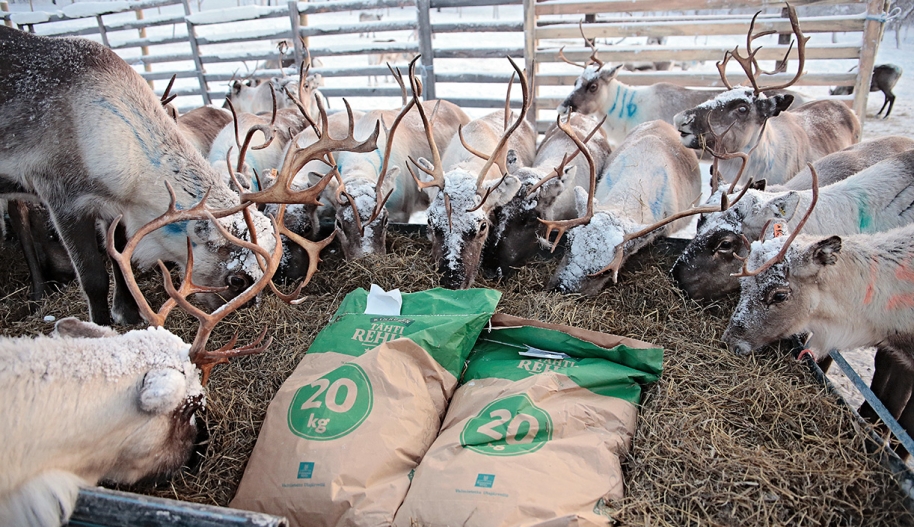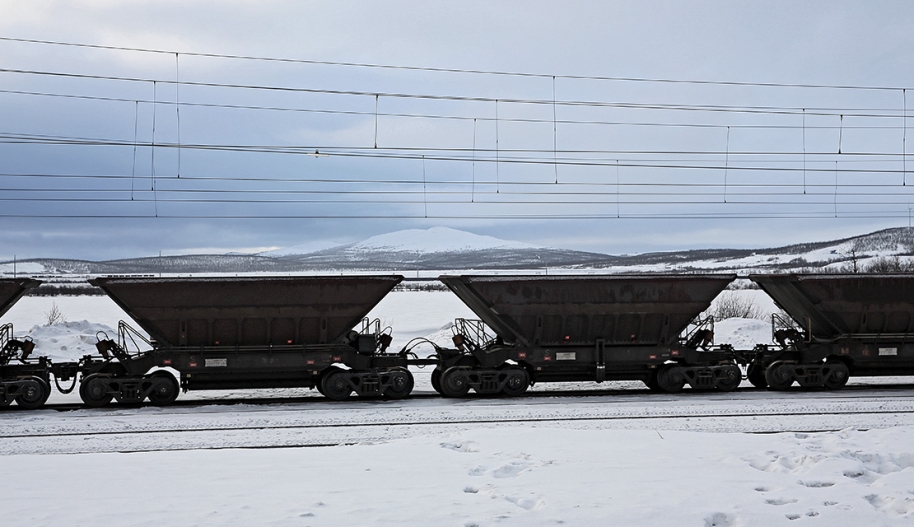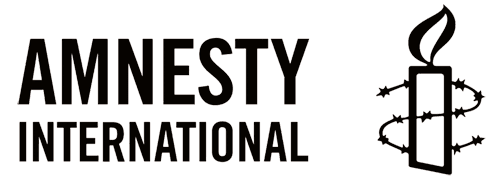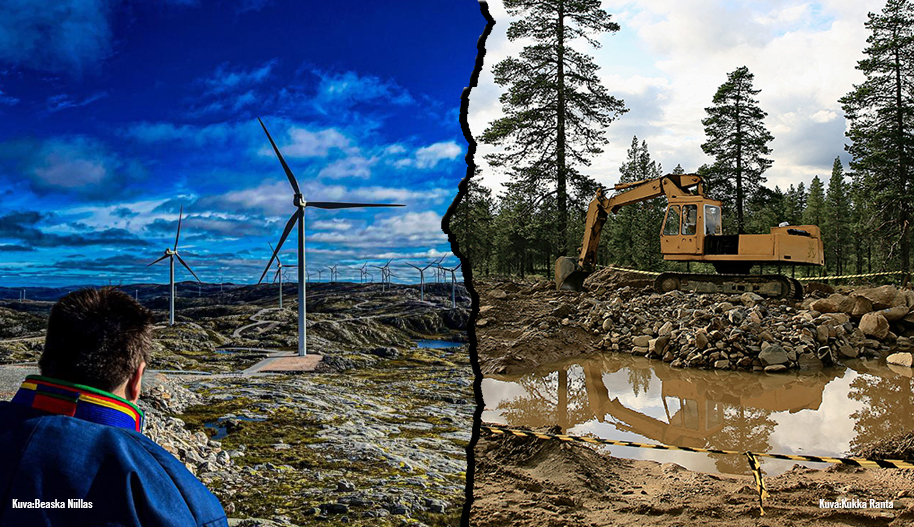Just Transition in Sápmi is a collaboration project of three Amnesty sections and Saami Council. Project calls for a stronger recognition and inclusion of the rights of the Sámi as an indigenous people within climate and energy politics.
The impacts of the climate crisis are intensifying everywhere in the world. In the Arctic, the climate is warming up to four times faster than elsewhere.
The warming climate threatens both northern biodiversity and the traditional livelihoods and cultural practices of indigenous peoples, such as the Sámi. Arctic nature and indigenous peoples are also threatened by mounting land use pressures, such as green energy initiatives, logging and mines. Many new initiatives are justified through the need for a green transition and the phasing out of fossil fuels.
A fast phase-out of fossil-fuels is necessary, but the energy transition must be carried out in a way that is just and respects human rights. Amnesty sections in Finland, Norway and Sweden and Saami Council are collaborating on the “Just Transition in Sápmi” project, which calls for a stronger recognition and inclusion of the rights of the Sámi as an indigenous people within climate politics.
Sápmi is the Northern Sámi word for the Sámi homeland area, which stretches across the borders of Finland, Sweden, Norway and the Kola peninsula of Russia.
Rights of the Sámi as indigenous people
The rights of the Sámi as indigenous people are set out in the Finnish Constitution. This means that beyond their individual rights, the Sámi have collective rights as a people, such as a right to maintain and develop their languages and culture, including traditional livelihoods. Indigenous peoples also have a right to self-determination over their political, social, and economic issues.
A central aspect of indigenous people’s right to self-determination is the principle of Free, Prior and Informed Consent (FPIC). This means that states must gain the consent of indigenous peoples before the approval and implementation of initiatives that have an impact on their human rights.
Climate change and the “green transition” threaten reindeer herding
Traditional reindeer herding is the most visible aspect of Sámi culture and one of the most central pillars supporting endangered Sámi languages and culture. Climate change and land-use initiatives that fragment herding lands are serious threats to the existence and survival of Sámi culture.
Changing climate and weather conditions are a significant challenge for reindeer herding, a practice that is adapted to northern ecosystems and conditions. If lichen, which reindeer feed on during the winter, freezes before it is protected by a layer of snow, it is difficult for reindeer to access. If weather conditions vary between warm and freezing during the winter months, the top layer of snow freezes and makes it challenging for reindeer to dig for lichen underneath.
When this happens, reindeer starve to death or they are dependent on supplementary feeding, which is a financial burden on herders. The situation is the worst in reindeer-herding collectives where extensive logging has led to the loss of beard lichen, which is a central source of nutrition for reindeer during the winter.

Reindeer herders have to feed their reindeer increasingly due to the impacts of climate change. Photo: Kukka Ranta.
On the Swedish side of Sápmi the green transition has led to a mining boom, and Sámi communities have lost herding lands and traditional routes due to mining initiatives. In Gállok of Northern Sweden, for instance, Sámi and environmental activists have been resisting mining plans for over ten years. The green transition has accelerated ore exploration and mining in Finnish Lapland as well. In the past years mineral exploration applications in the areas of reindeer-herding collectives of Ivalo, Hammastunturi, Lappi and the north-western ‘Käsivarsi’ -region have caused concern and opposition.

The iron ore train from Kirun to Narvik leads to hundreds of reindeer deaths each year, and as mining increases, so does train traffic. Photo: Kukka Ranta.
On the Norwegian side of Sápmi the green transition has led to the building of wind parks, in particular. 151 wind turbines were built in central Norway in the Fosen peninsula, even though it was opposed by local Sámi and United Nation’s Committee on the Elimination of Racial Discrimination appealed to Norway to stop the initiative.
In October 2021 Norway’s Supreme Court ruled that two wind parks in the area were illegal and violated the rights of the Sámi. In the spring of 2023, 500 days after the decision of the Supreme Court, hundreds of Sámi and their supporters gathered in the streets of Oslo to demand the government to act on the decision. The prime minister apologized, but the Norwegian government is still unwilling to demolish the wind parks.
Also in northern Norway, right on the Finnish border in the Rástigáisá fell area, the Davvi windpark is being planned without the prior consent of the Sámi. This area is not just important to reindeer herding, but is also a biodiversity hub of the entire Finnmark area, as well as a holy place to the Sámi.
Just Transition in Sápmi project
Amnesty sections in Finland, Norway and Sweden, together with the Saami Council, will collect information on the mounting land-use pressures caused by the green transition, as well as human rights violations linked to land-use in Sápmi.
Just Transition in Sápmi is a two-year project which started in the spring of 2023. The project furthers the awareness and consideration of Sámi rights in climate politics and as a part of a just green transition. It explores the shortcomings and issues in the realization of the principle of Free, Prior and Informed Consent (FPIC), and raises solutions and best practices in the fulfilment of Sámi rights.
During the project we will compile information and communicate on the topic, organize events and training, as well as engage in advocacy.
Further information and queries:
- Elina Mikola, Advisor, Climate and Environment, elina.mikola@amnesty.fi


